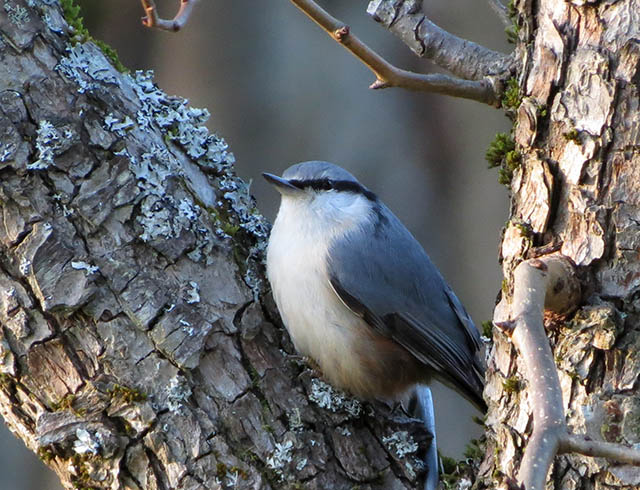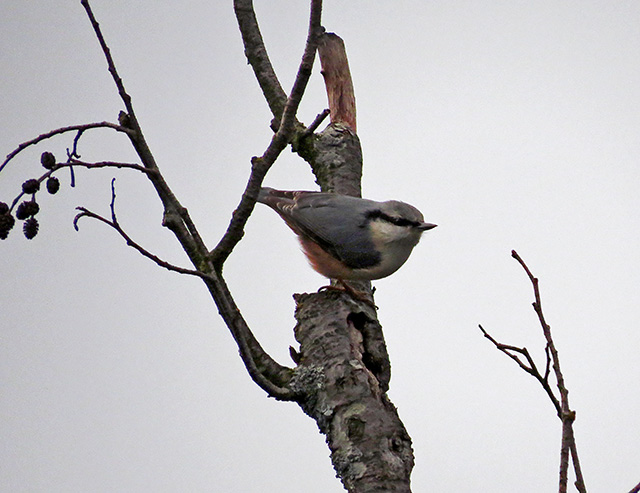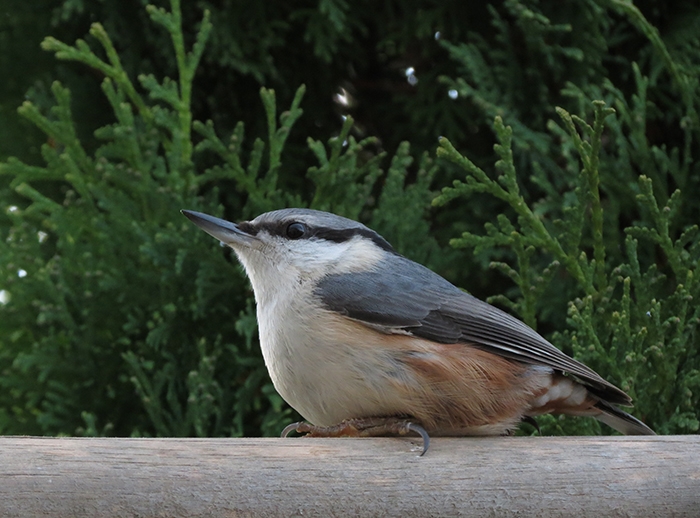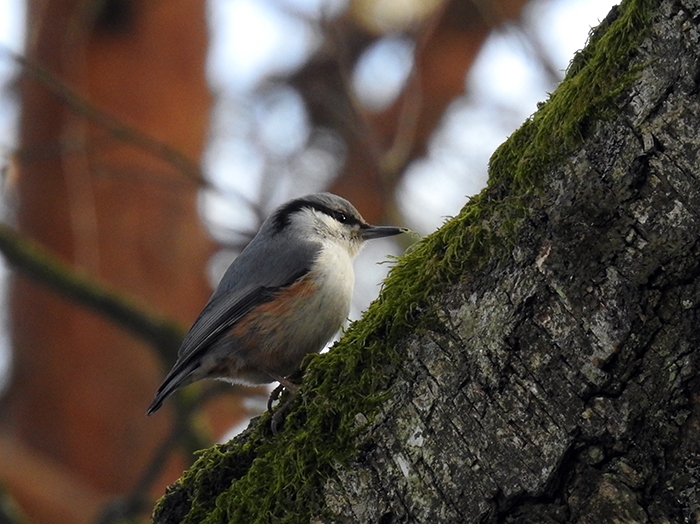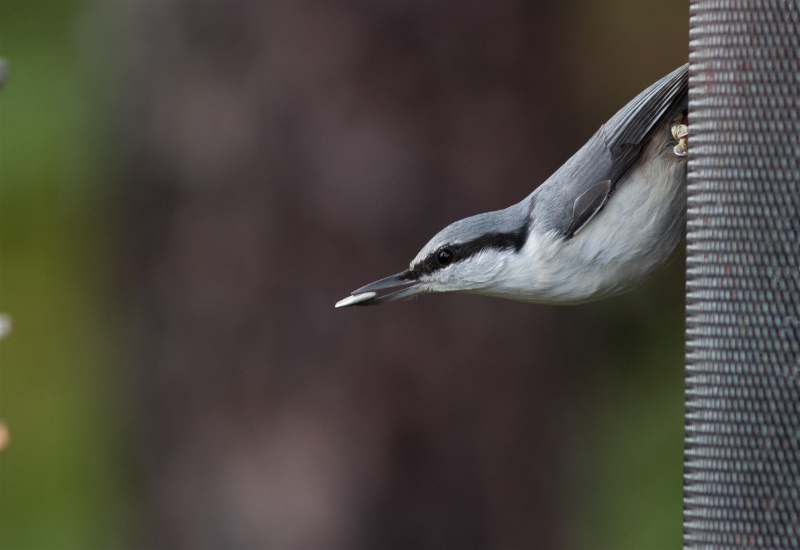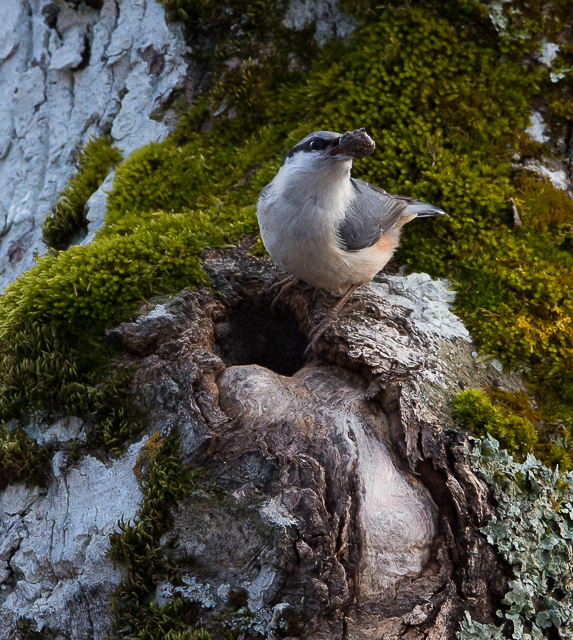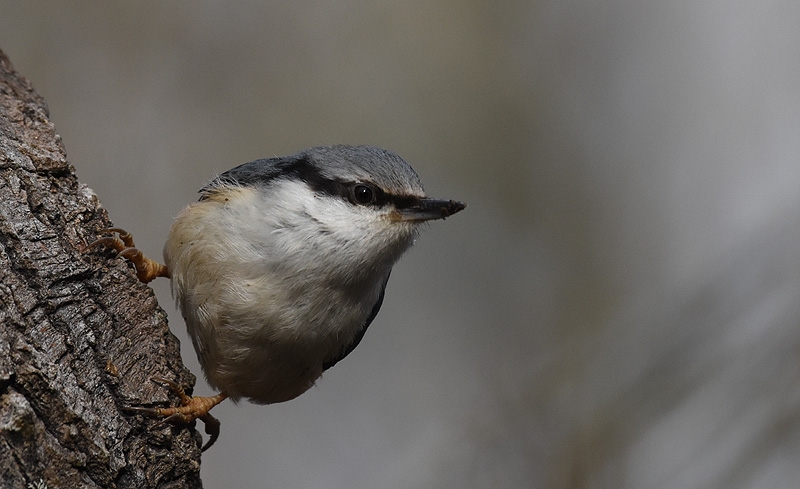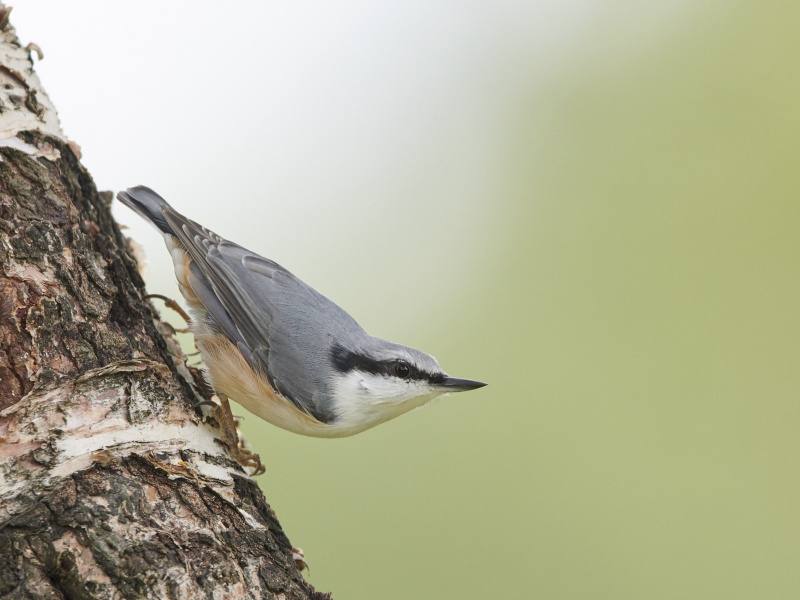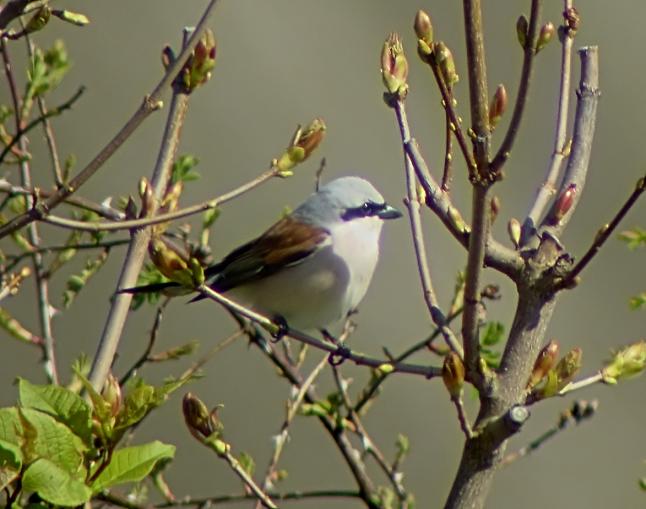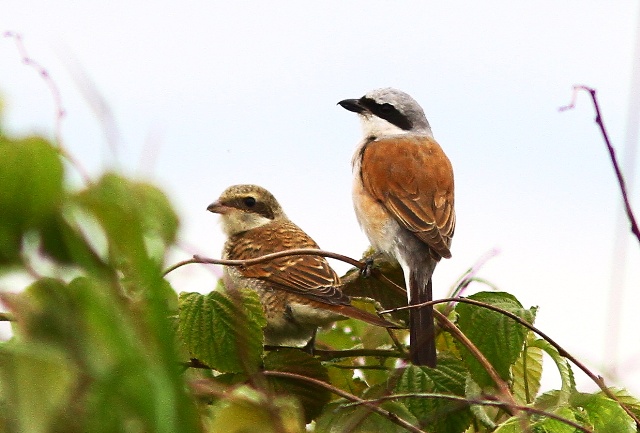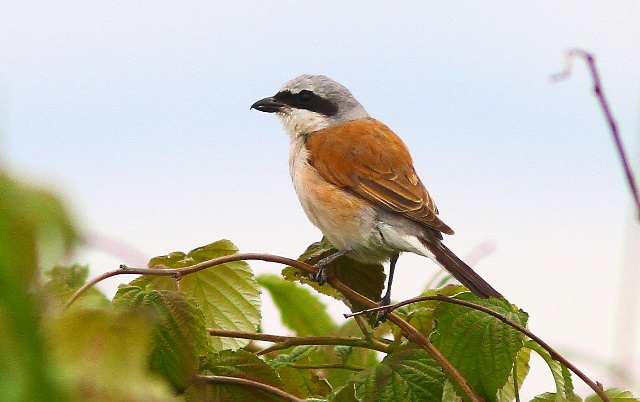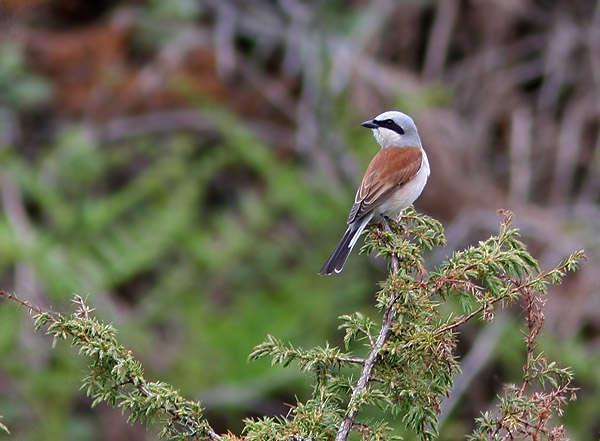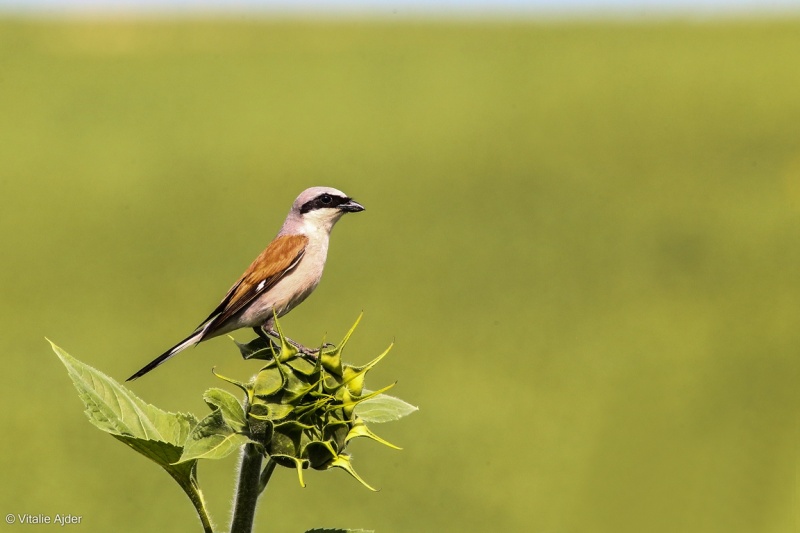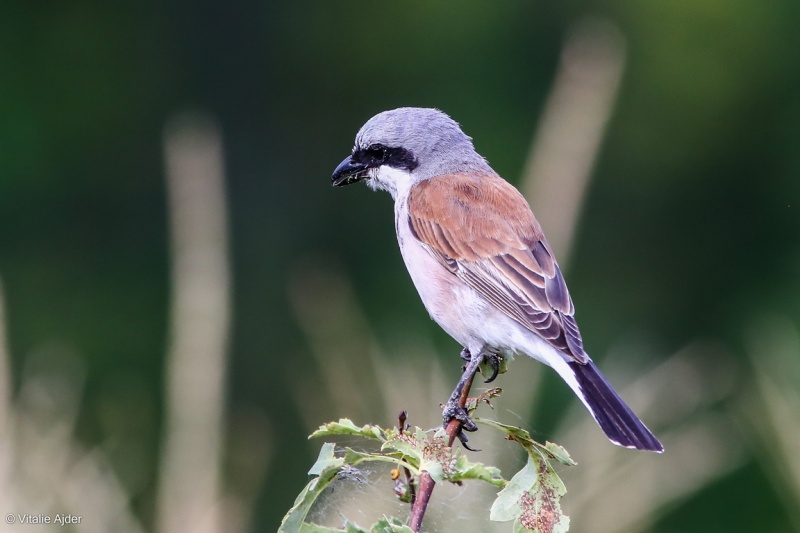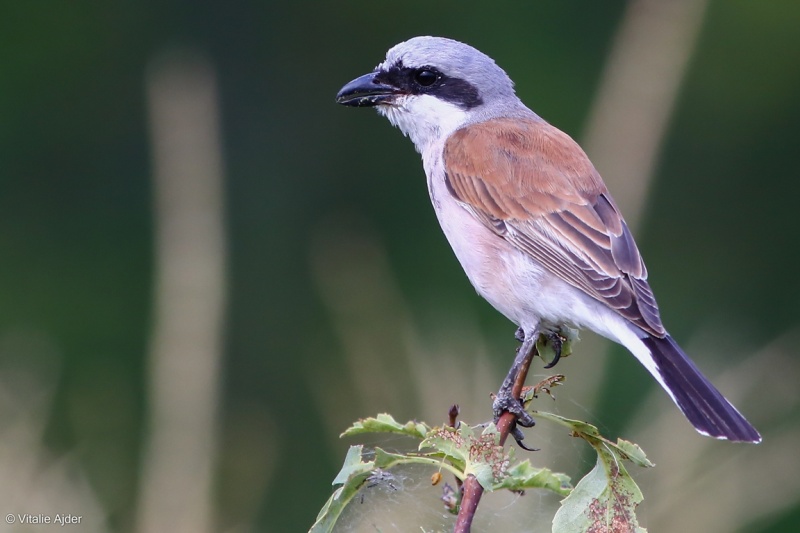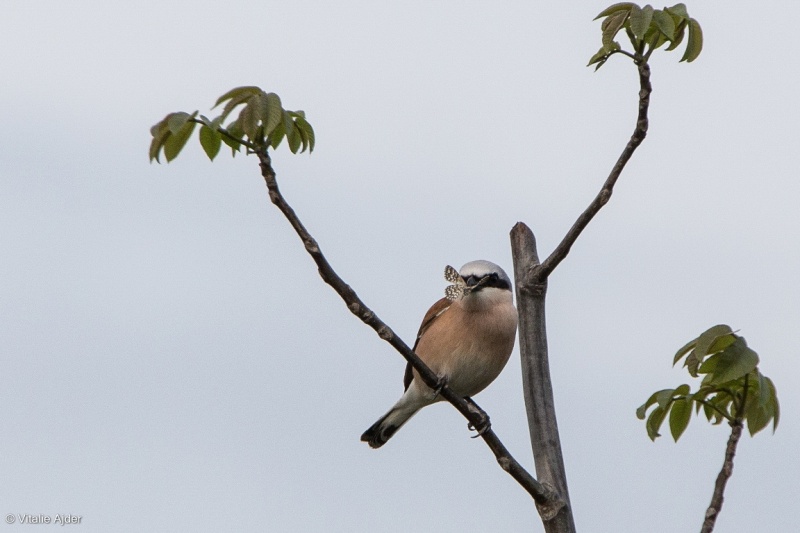Nuthatch (Sitta europaea)
Red-backed Shrike (Lanius collurio)
Unmistakable in most of Europe where no other nuthatch species occur. Only bird climbing head-first downwards trees. Blue-grey upperparts, white underparts and solid black eye stripe. Large head, long bill and short tail. Climbs in jerky, but nimble motion. Scandinavian birds with mostly white underparts (except for vent), continental birds with more rufous belly.
Sound:Very varied voice. Ranging from very high pitched whistles and melodic resonant calls, to chattering and nasal mocking sounds. Song a simple series of loud notes. Characteristic warning call a hard "check" or "chwit", often in rapid series, like a pebble bouncing on hollow ice.
Song:
Distribution:
Wikipedia: map (se also Xeno-canto below)
Ecology:Birdlife ecology
Links:
Observation.org Latest observations
Image search Flickr NB! May give other species
CCMale with brown back, pinkish white underparts and a bluish grey head with a black eye mask. Female more dull with barred underparts. Juvenile like female, but upperparts also barred . Tail brown with white edges in all plumages. Females and juveniles easily confused with other southern/eastern or vagrant shrikes like; Brown Shrike, Isabelline Shrike, Woodchat Shrike and Turkestan Shrike. Differs from those in white sides of tail, barred rump, mantle and scapulars, scaly underparts and dark or yellowish base of bill (not pink).
Sound:Call a hard "check check" (like striking two rocks together), and a variable nasal "twee" Song surprisingly varied with many expert imitations of small passerines, interwoven with bell-like ringing and dry chirping sounds. May be confusing and hard to identify if bird not seen. Song not very loud, but phrases can be very long.
Alarm call, song:
Distribution:
Xeno-canto: map
Ecology:Birdlife ecology
Links:
Observation.org Latest observations
Image search Flickr NB! May give other species
CC
 English
English Albanian
Albanian
 Armenian
Armenian
 Bulgarian
Bulgarian
 Catalan
Catalan
 Croatian
Croatian
 Czech
Czech
 Danish
Danish
 Dutch
Dutch
 Finnish
Finnish
 French
French
 Georgian
Georgian
 German
German
 Greek
Greek
 Hungarian
Hungarian
 Italian
Italian
 Latvian
Latvian
 Lithuanian
Lithuanian
 Macedonian
Macedonian
 Norwegian
Norwegian
 Polish
Polish
 Portuguese
Portuguese
 Romanian
Romanian
 Russian
Russian
 Sami : Lule sami
Sami : Lule sami
 Sami : North sami
Sami : North sami
 Sami : South sami
Sami : South sami
 Scientific names
Scientific names
 Serbian
Serbian
 Spanish
Spanish
 Swedish
Swedish
 Ukrainian
Ukrainian


